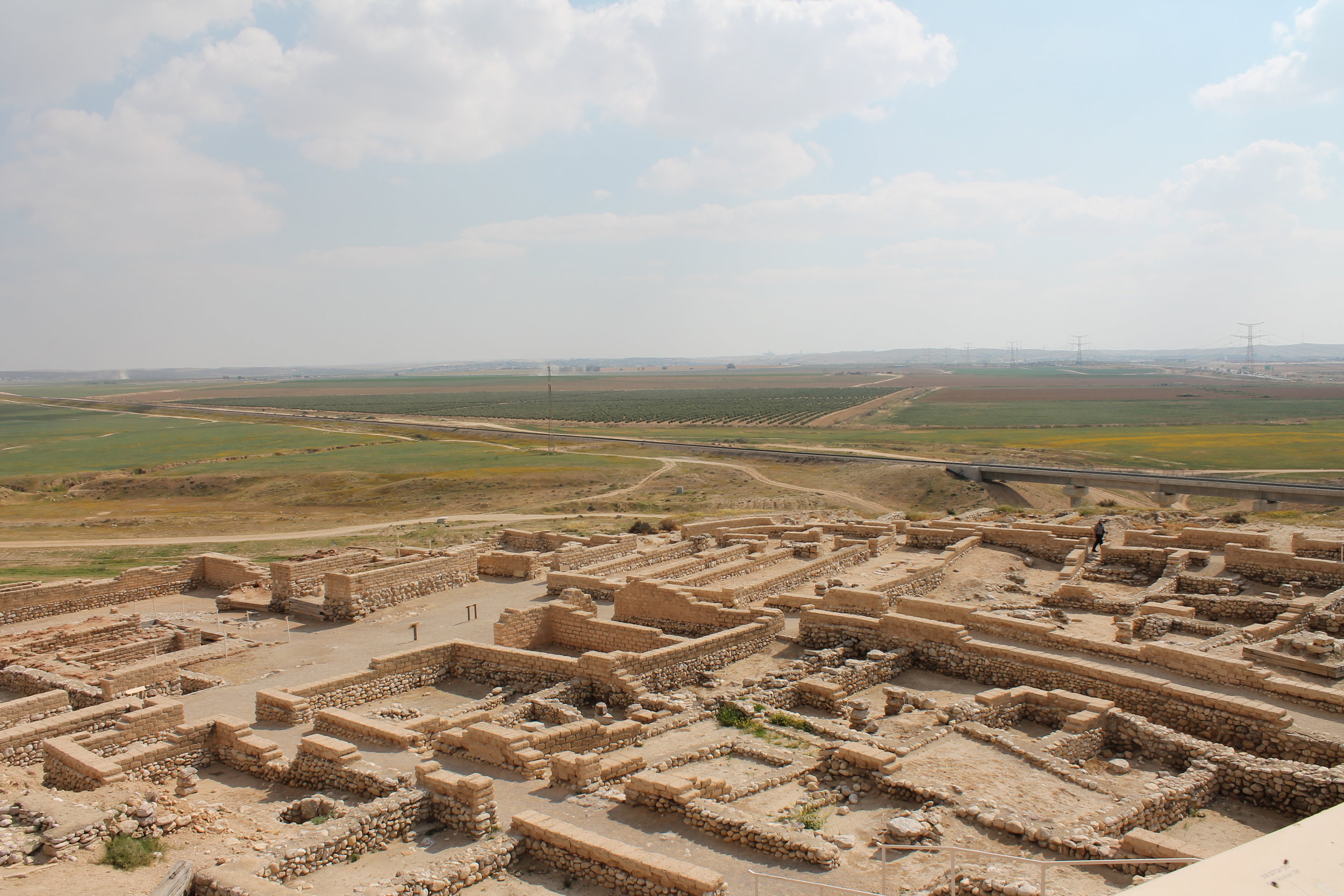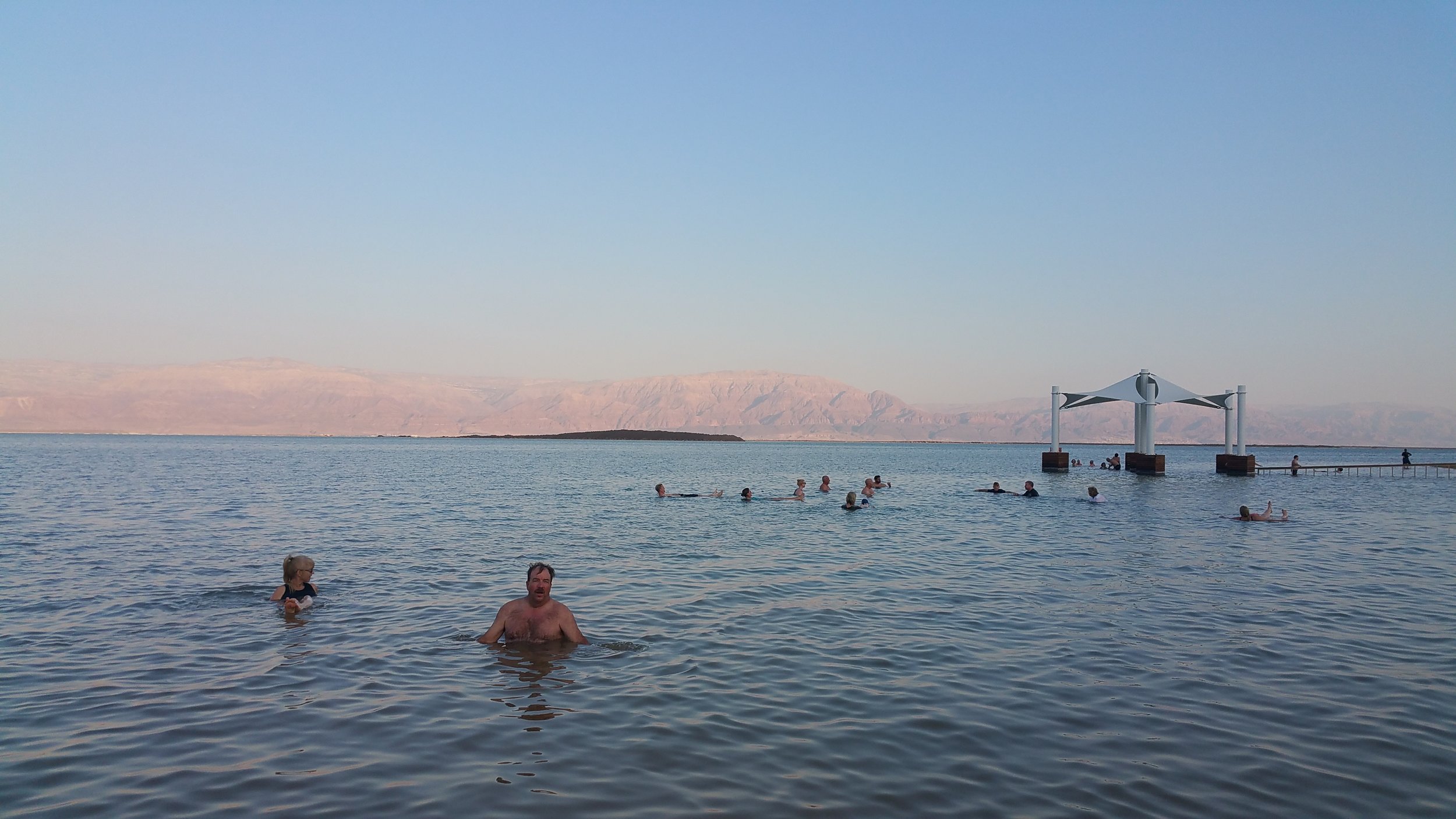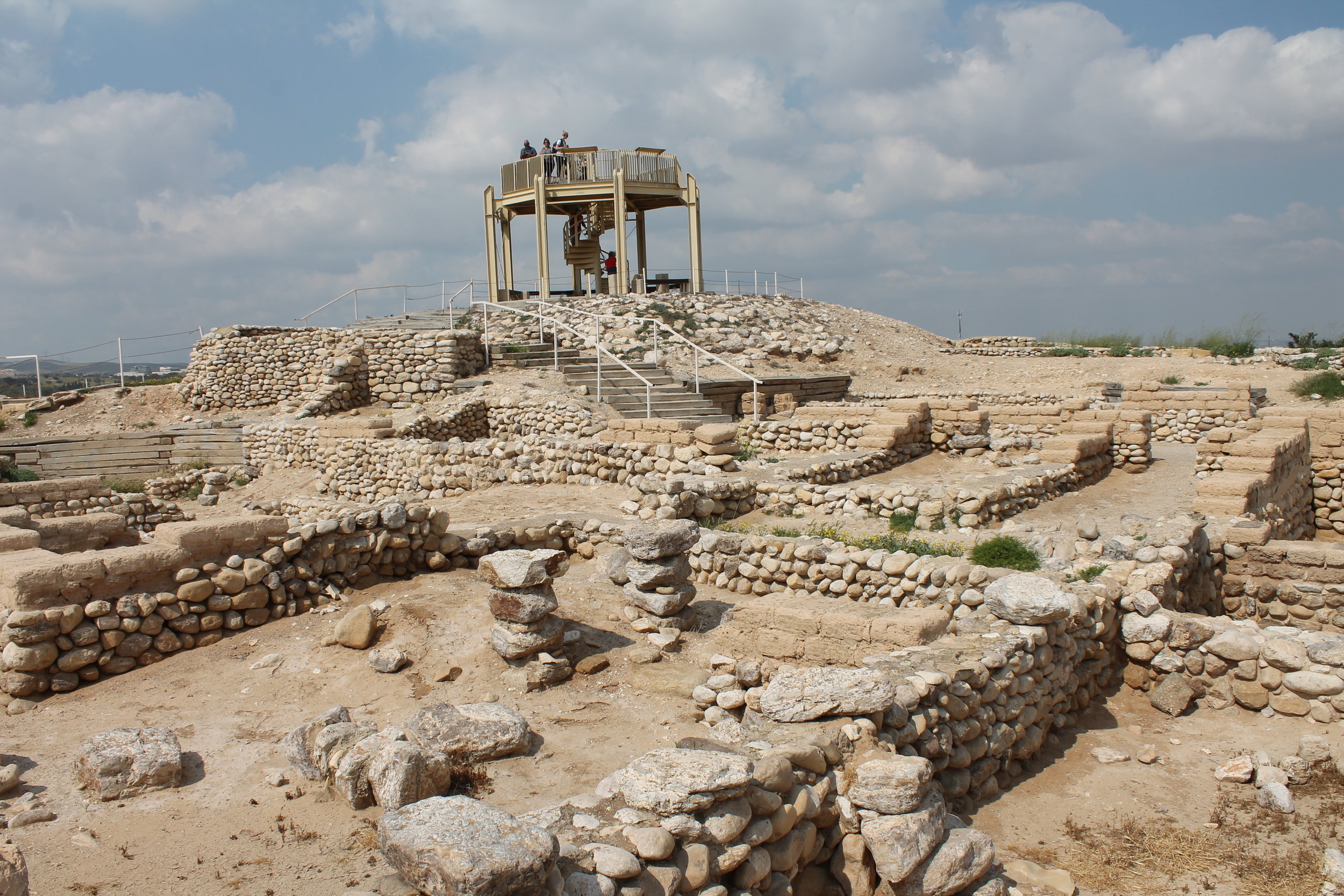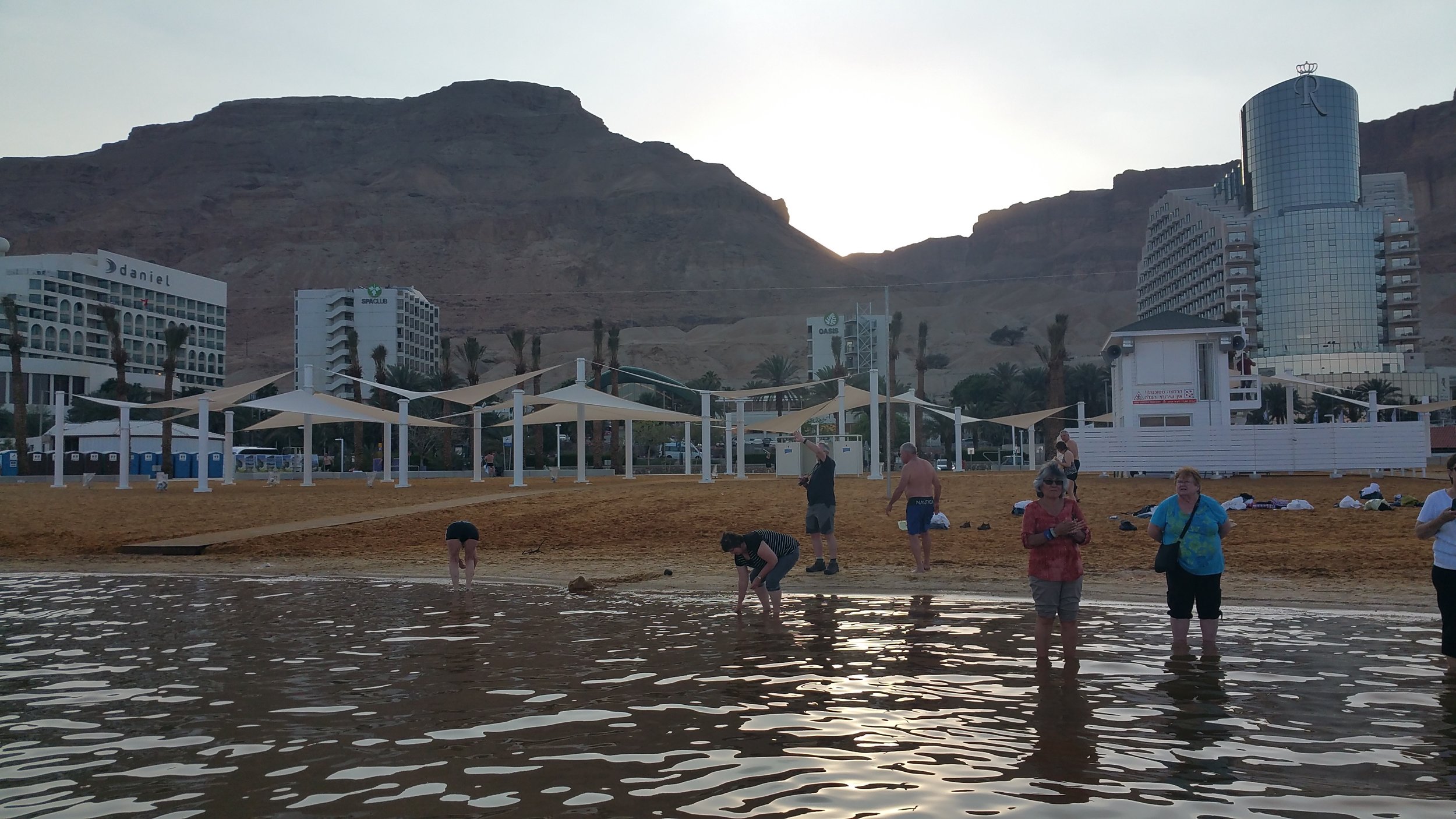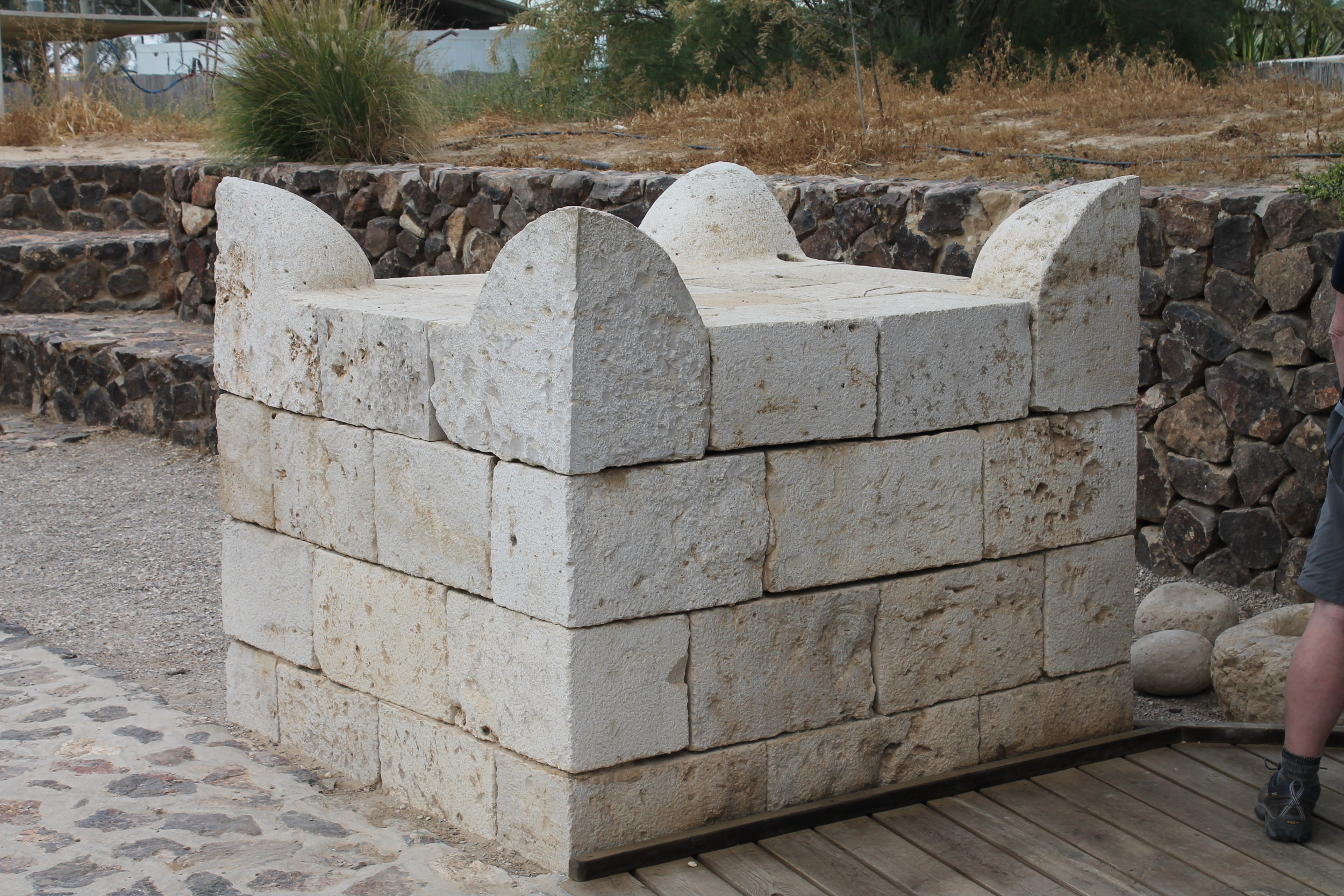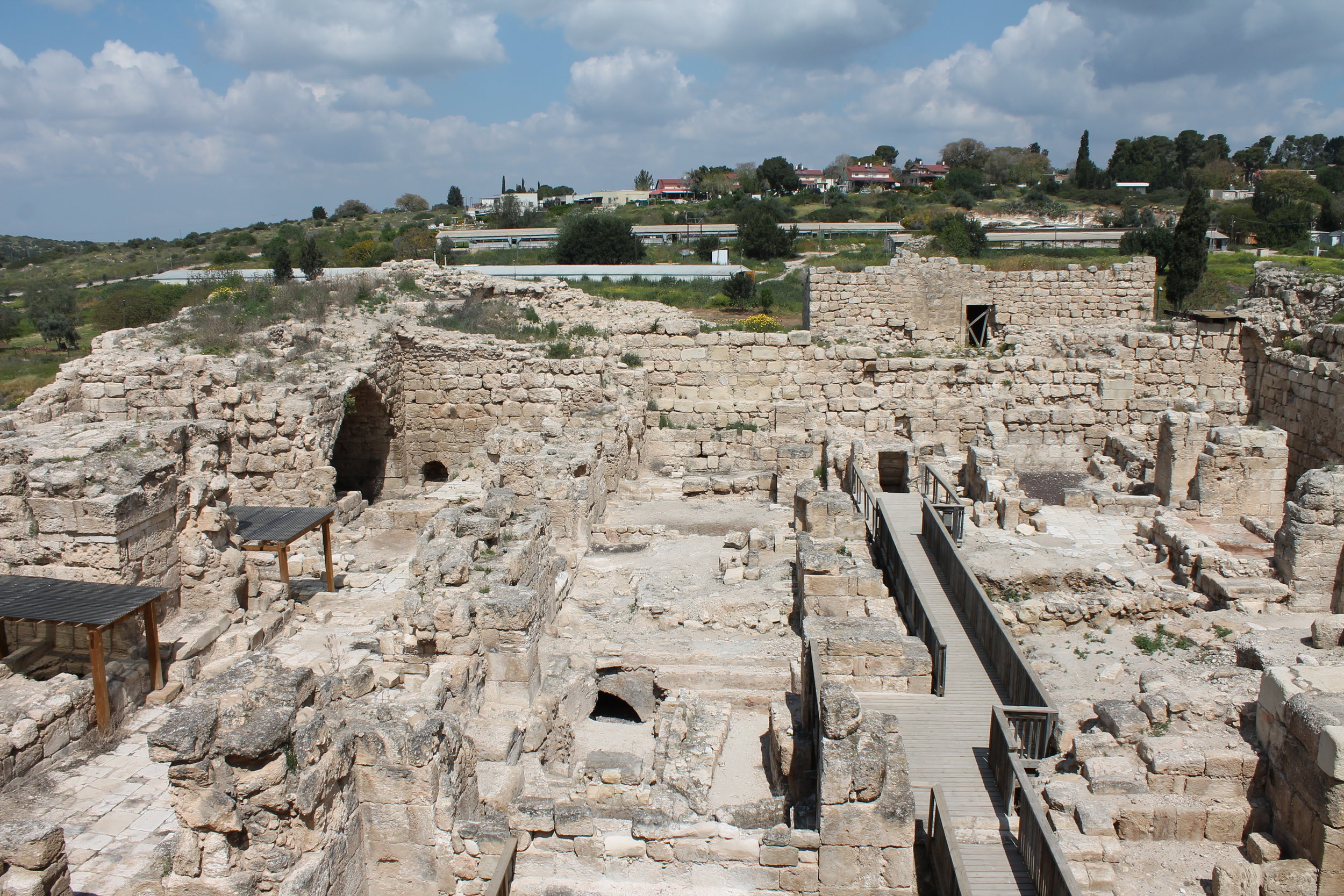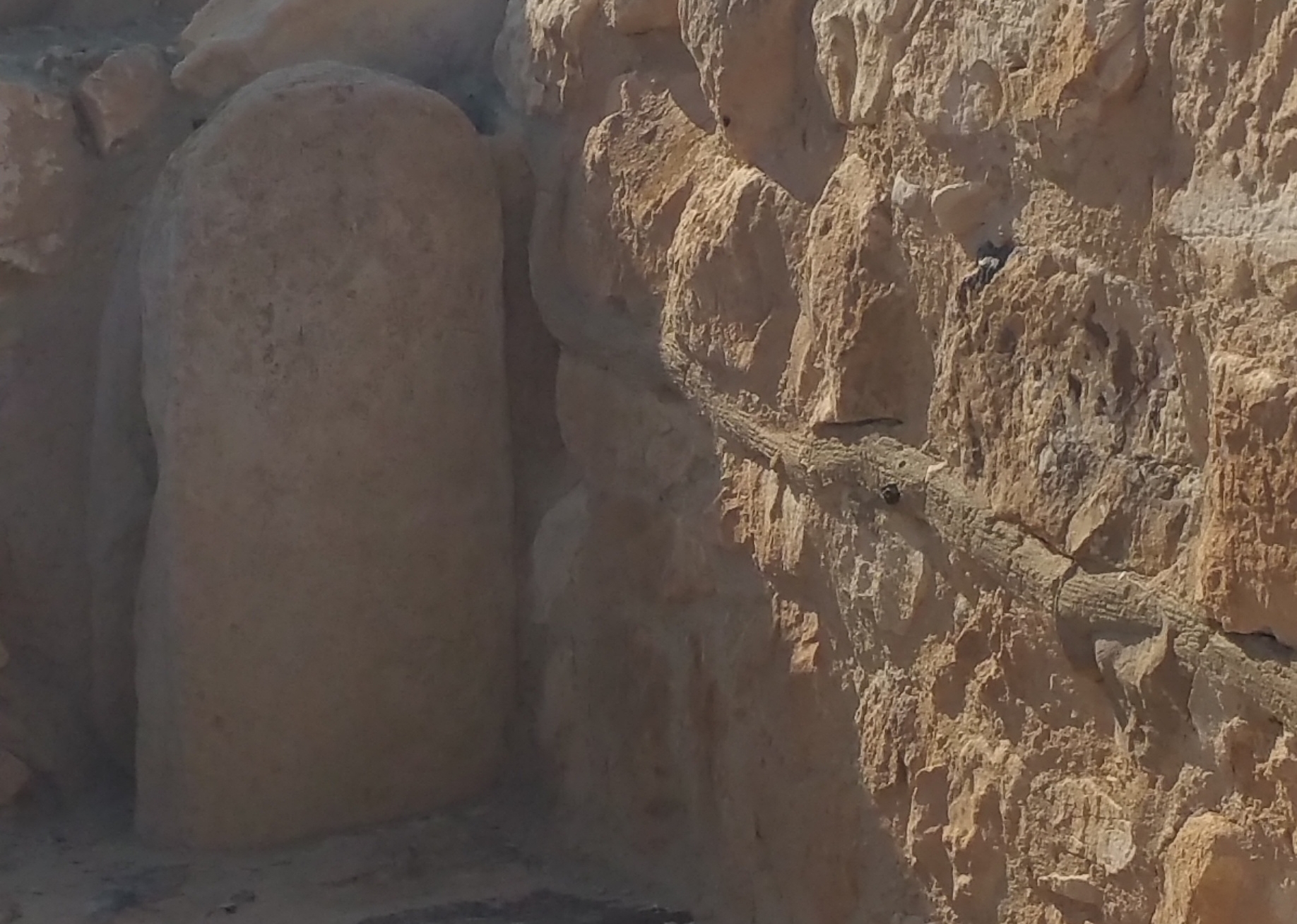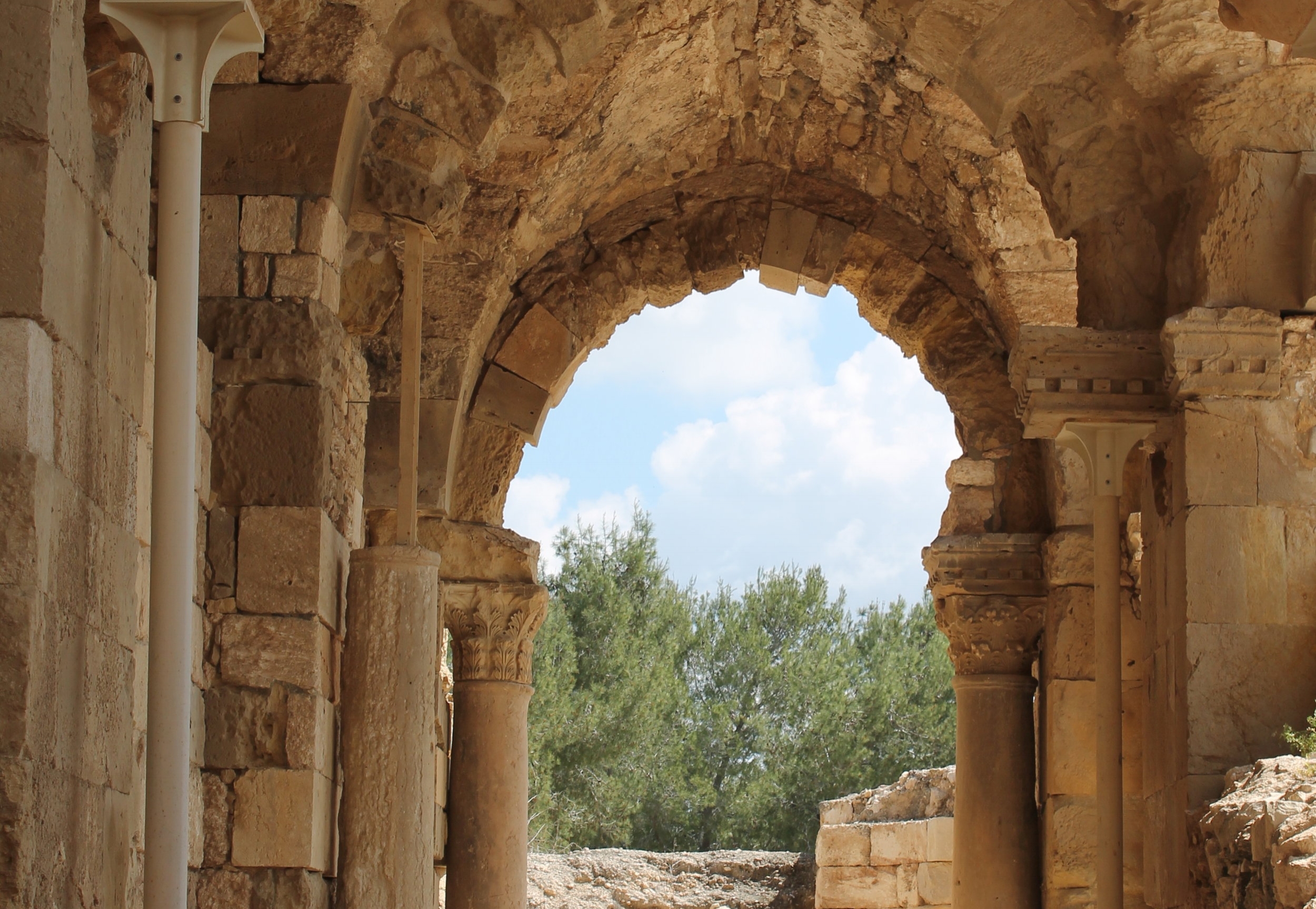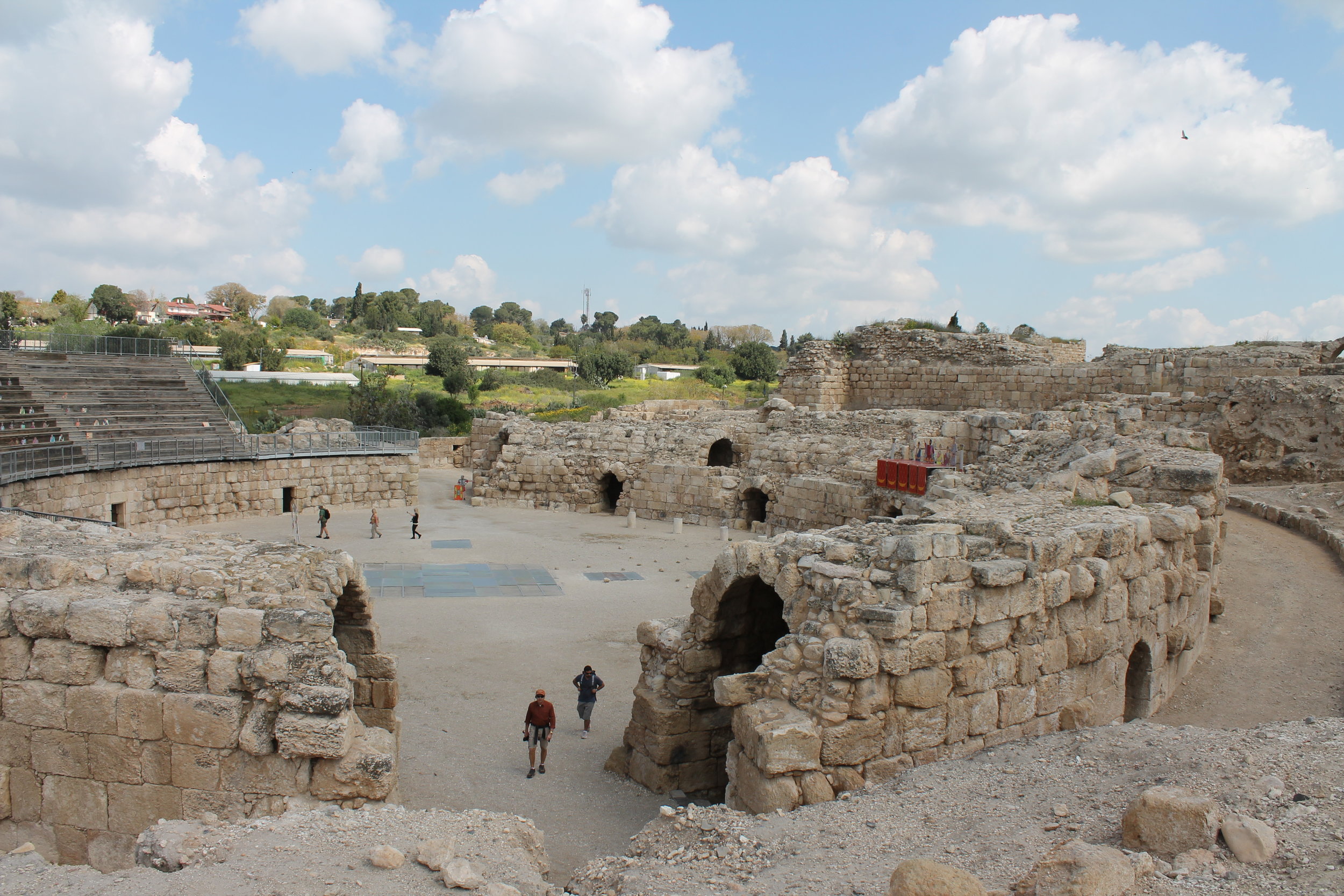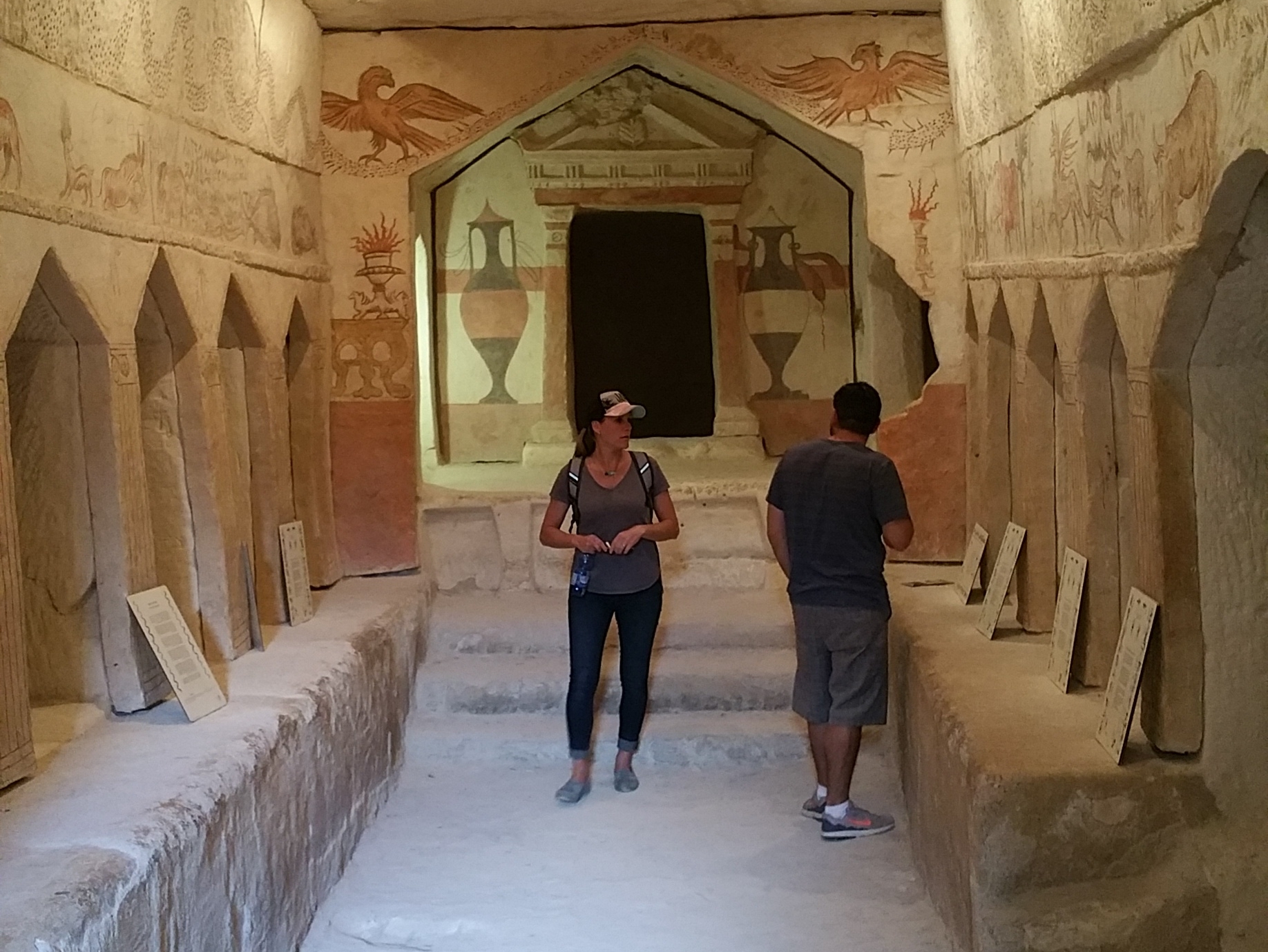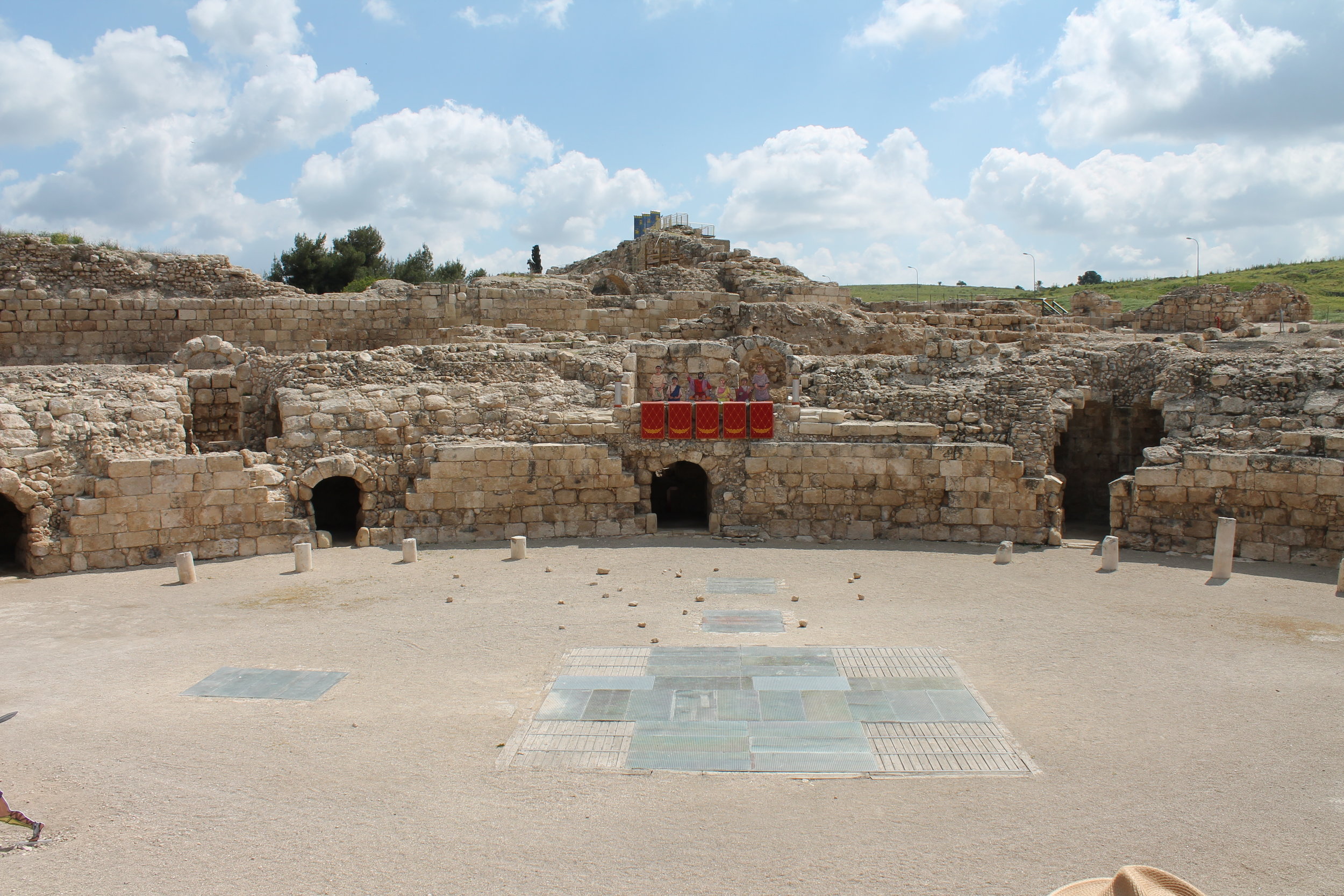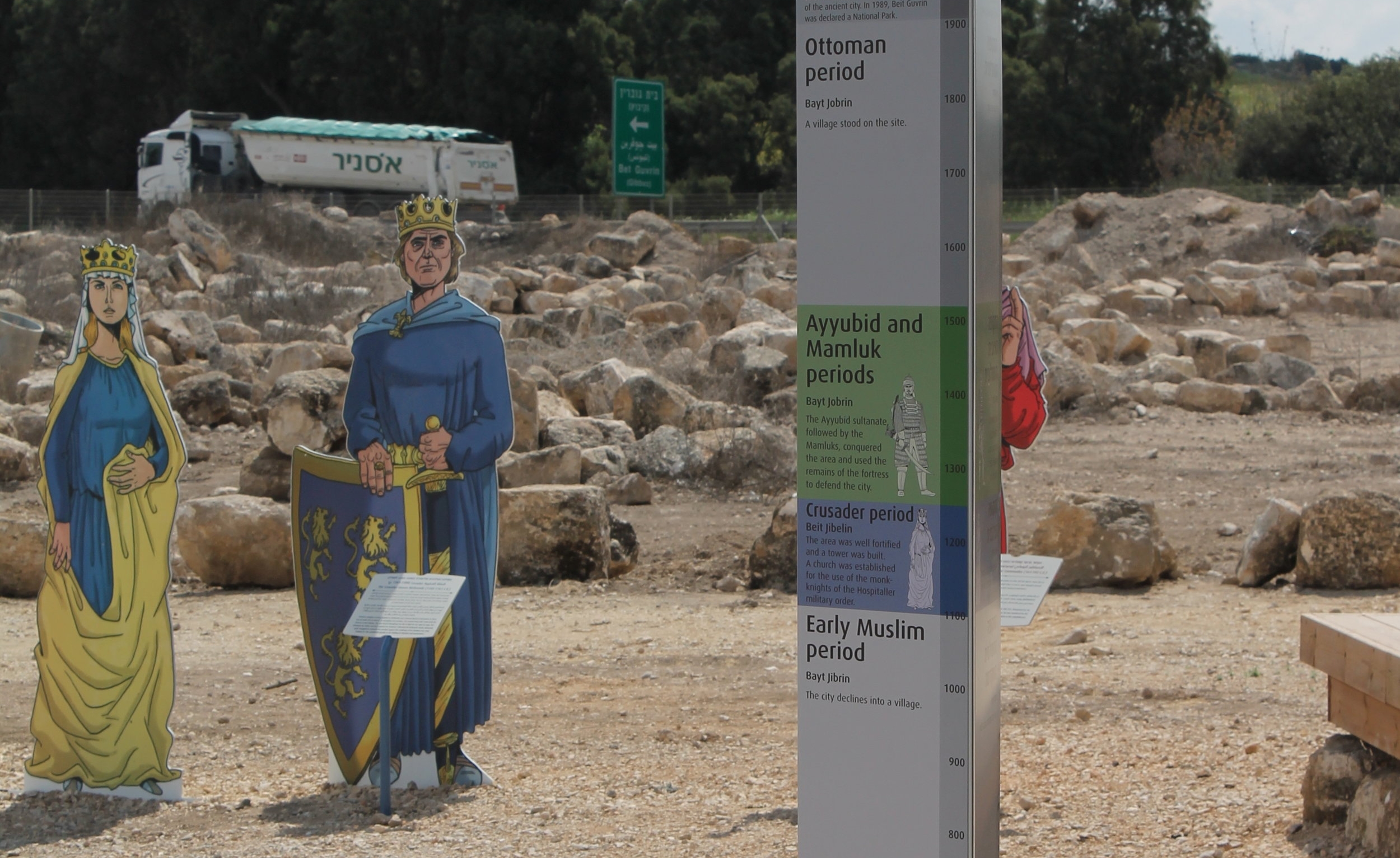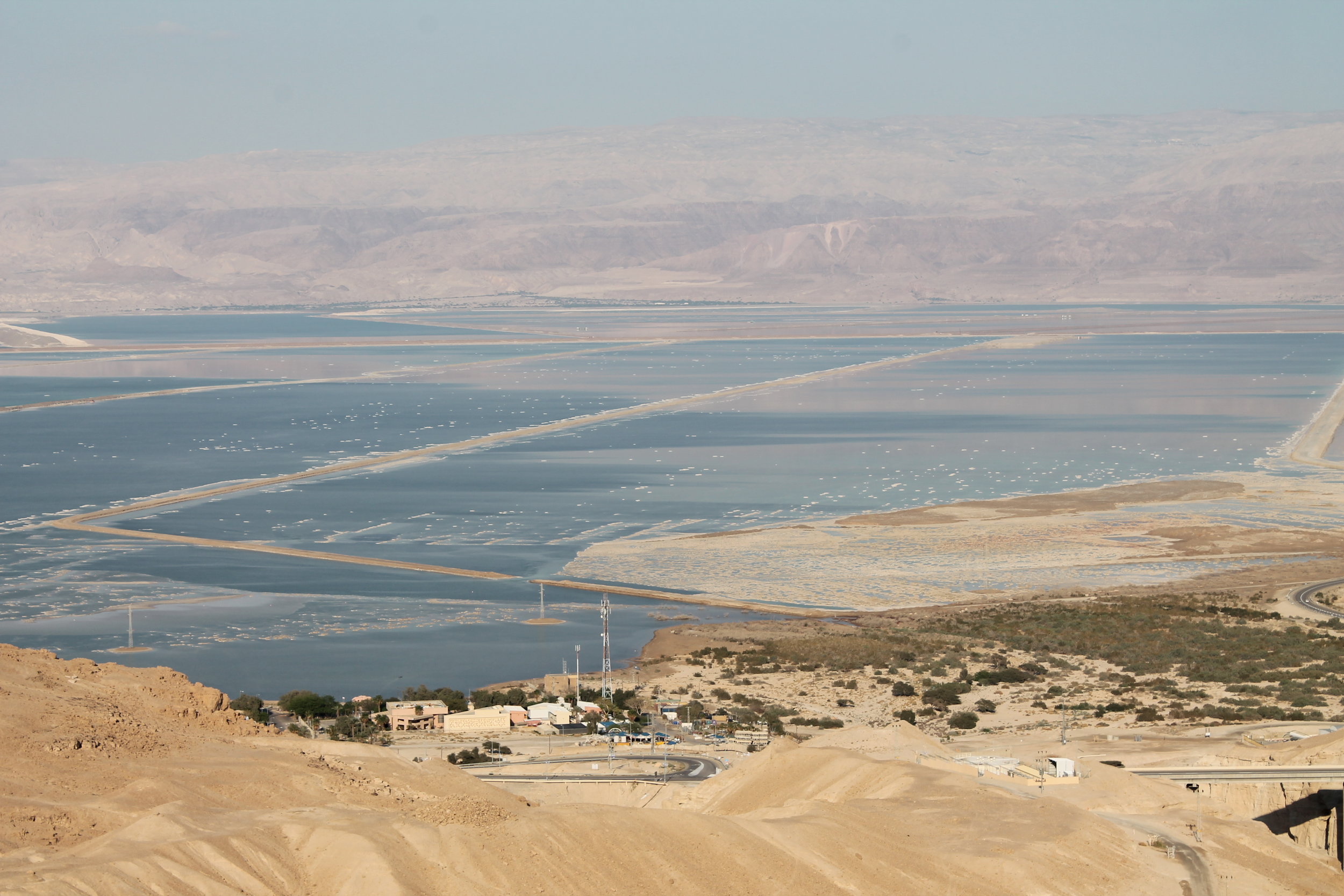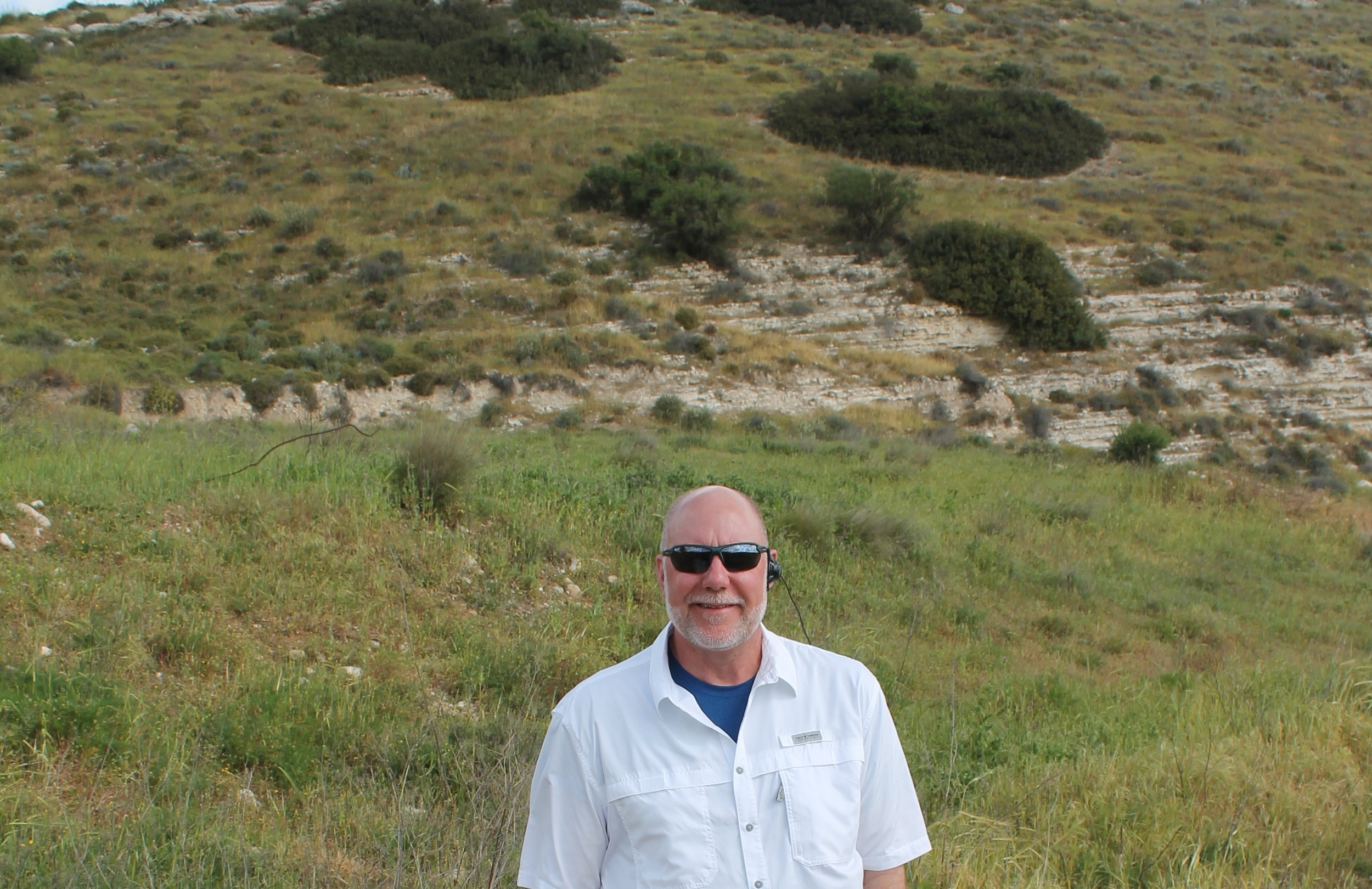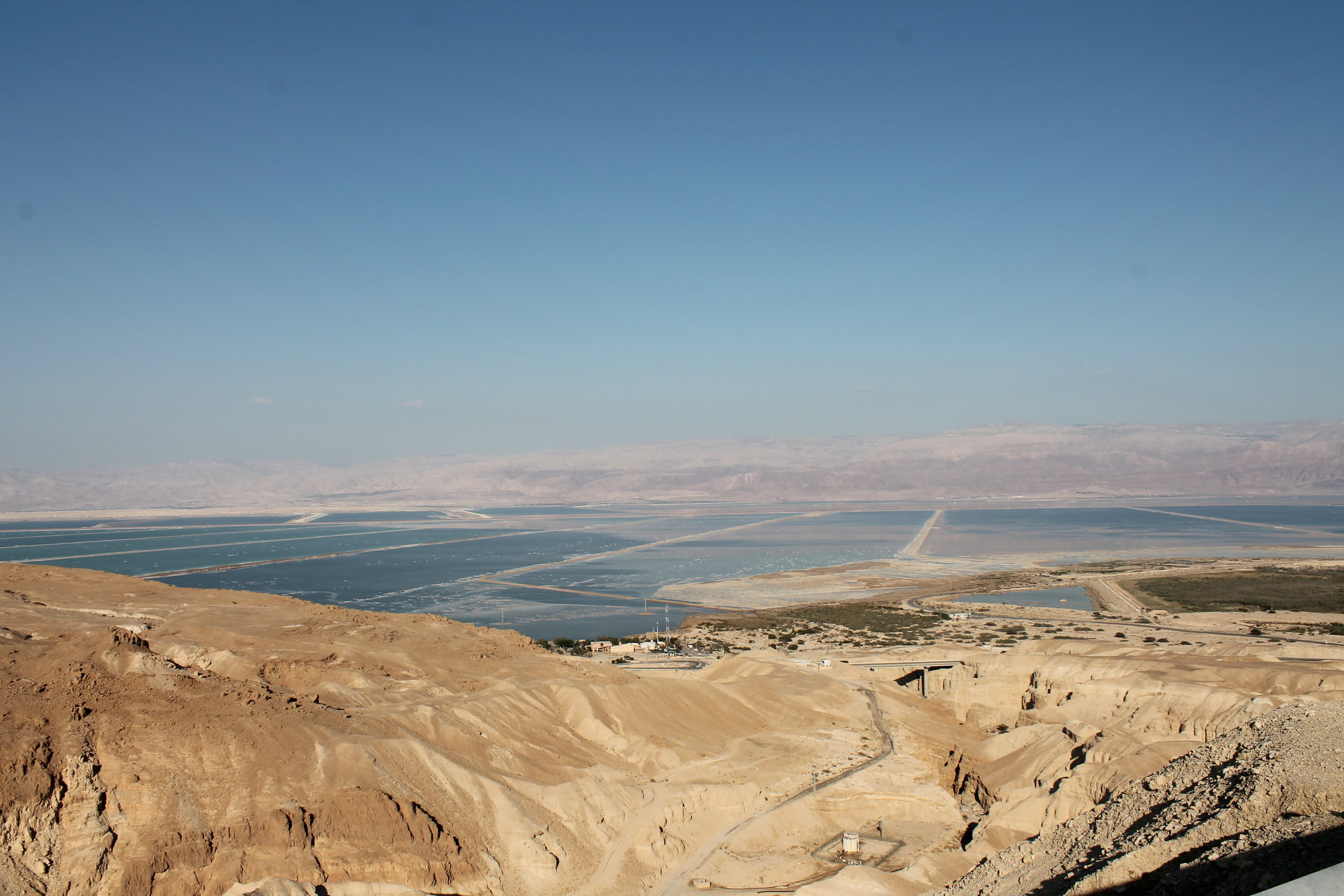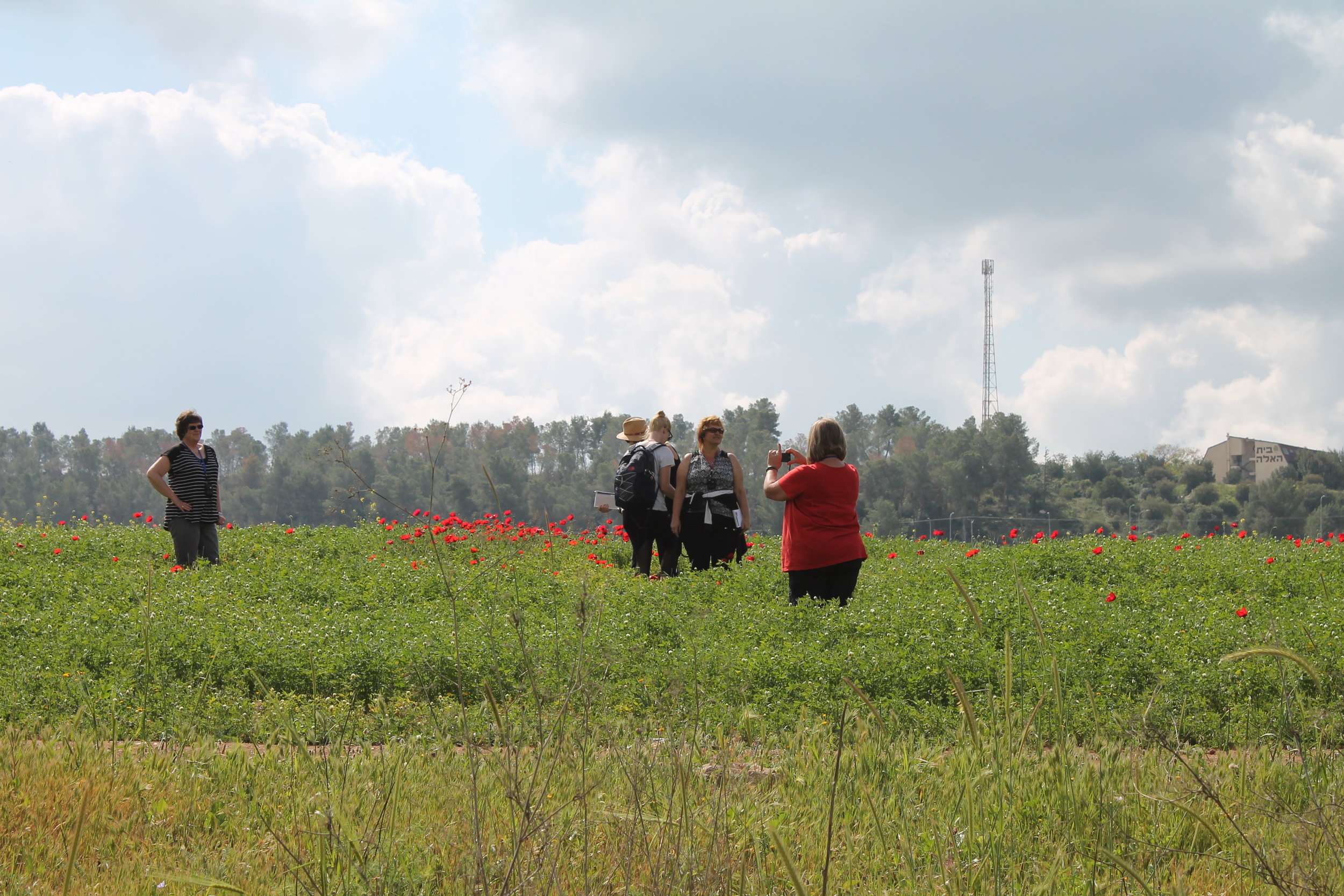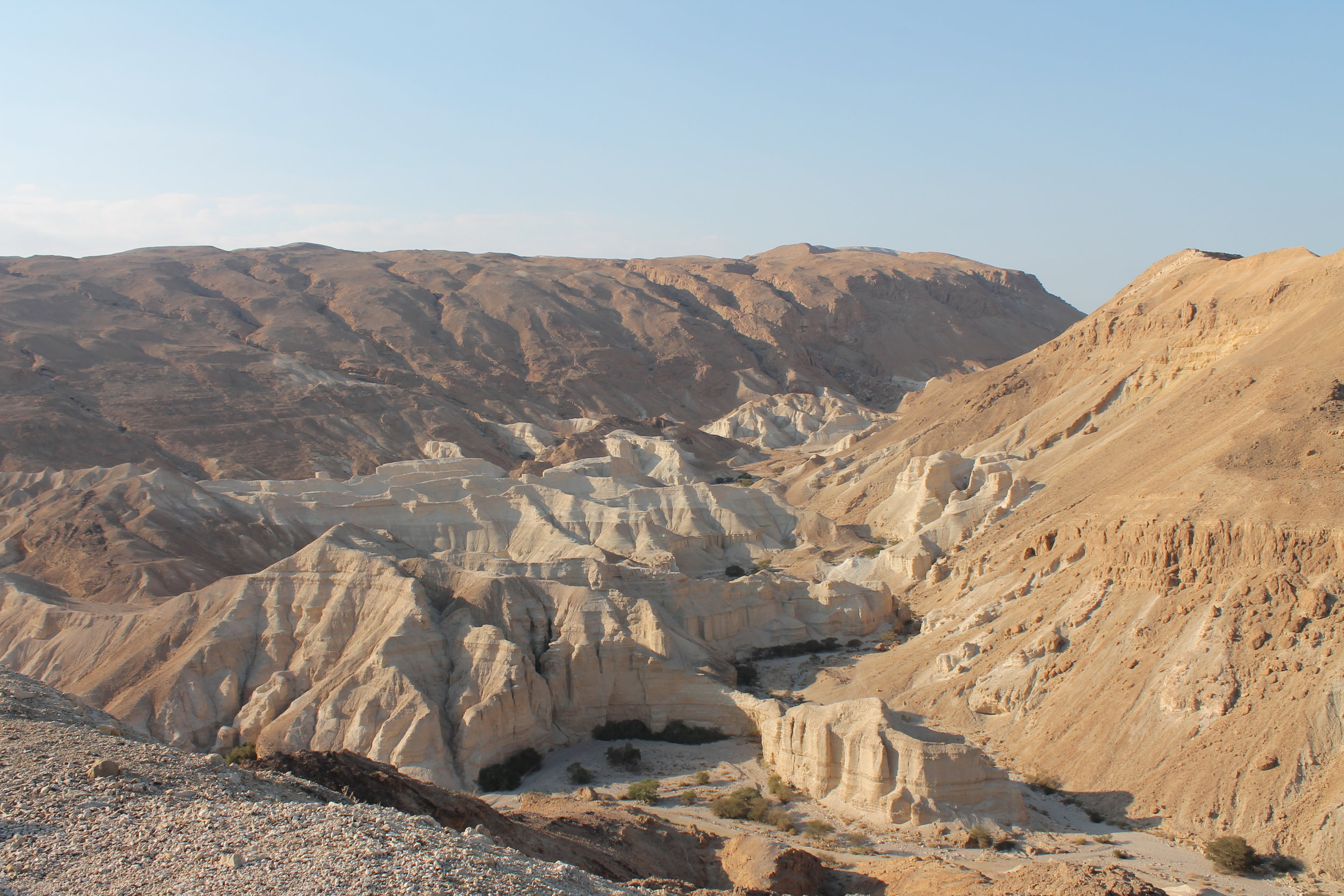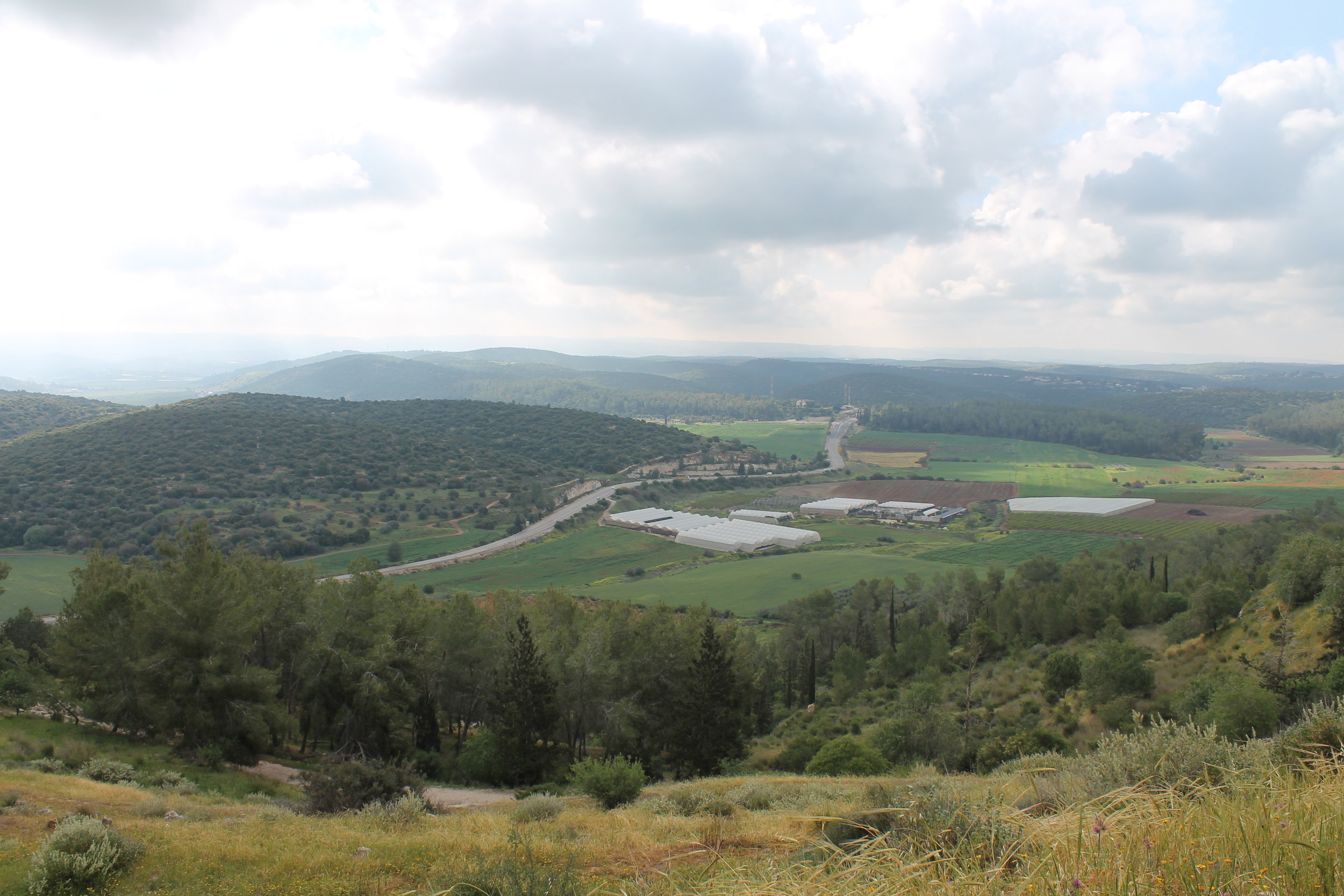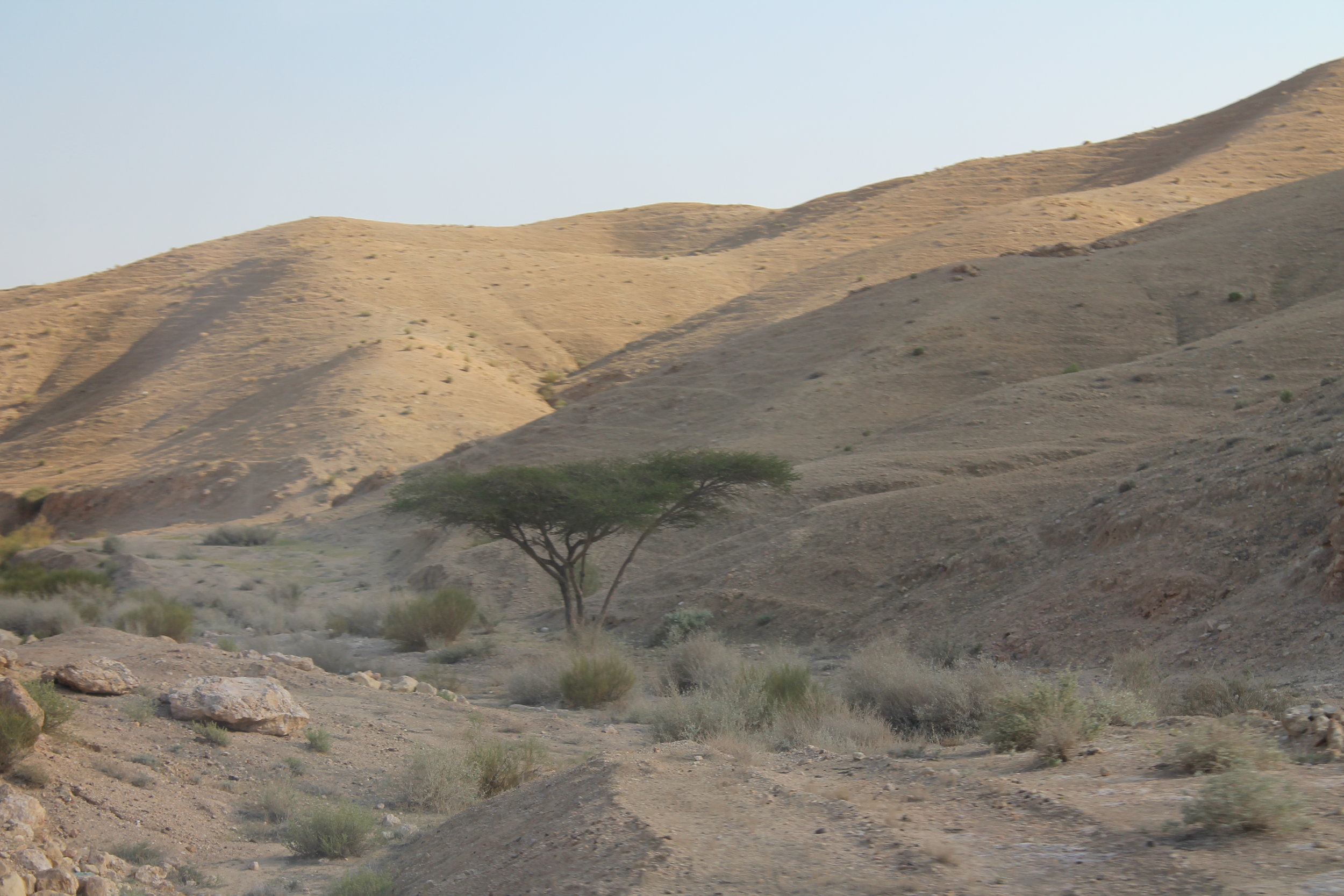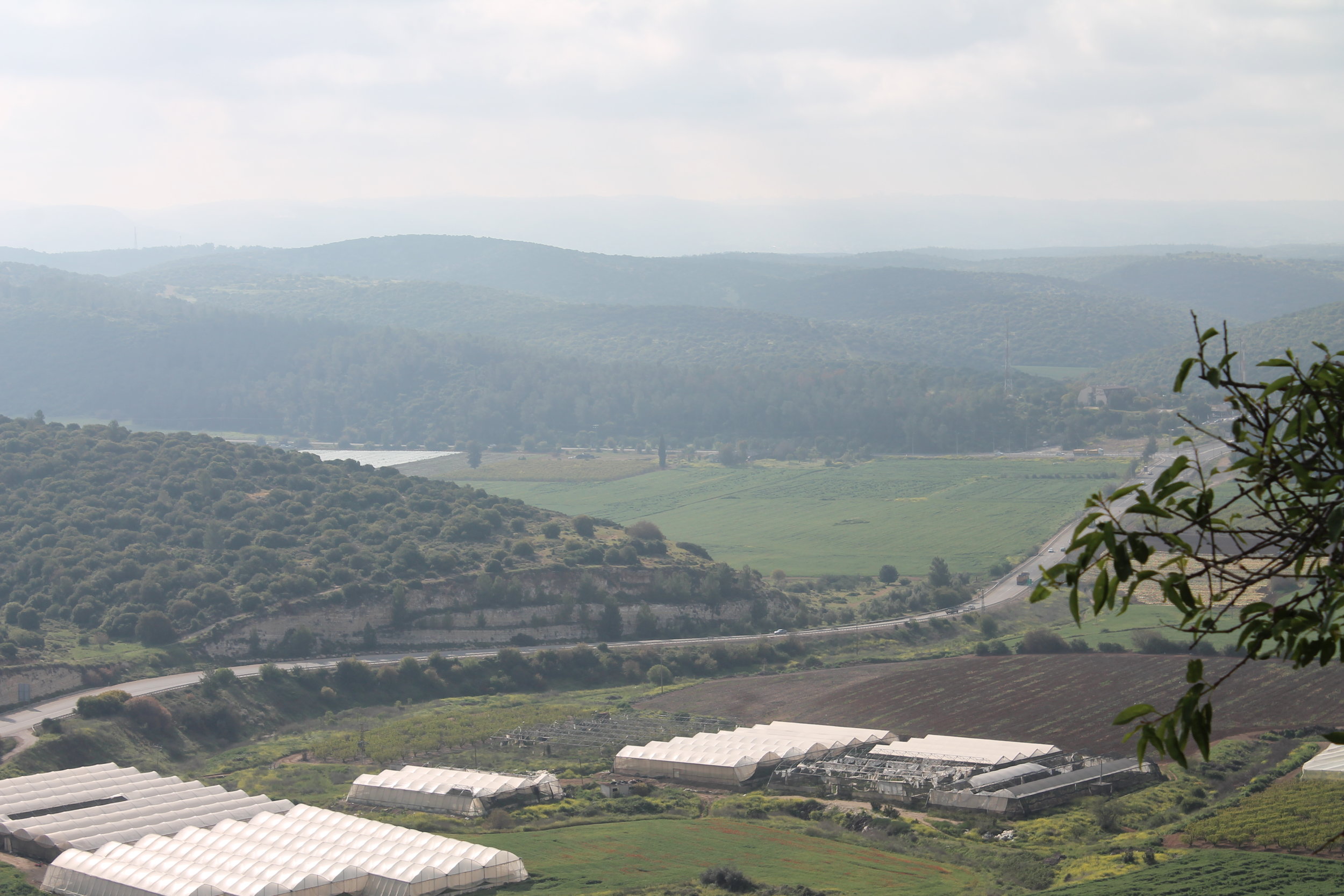Day 9--Monday, April 3
Today we move south into the desert. On our way we learn from our guide Jacob his perspective on the educational system in Israel. To sum up, he suggested that the mandatory draft into the military is the best education for life. Many also study abroad to become well connected in the world. The two official languages in Israel are Hebrew and Arabic, not English which has been resisted because of colonialism. While that may be true, many Israelis do quite well with the English language.
Ironically, there is a community west of Jerusalem on the road to Emmaus that claims to be the largest Elvis fan club in the world, referred to as "Little Memphis." Sure enough, as we drove by we could see the Elvis sign declaring their fandom. No kidding. If you're interested, http://www.ibiblio.org/elvis/elvisinn.html.
Fun Fact: about 10 percent of those living in Israel are from north America.
This was a supercharged day with an abundance of driving and significant sites to visit. We visited Tel Beth Shemesh, an excavation of an important Israelite city in the Sorek Valley, a bordering Judah and Dan and given to the Levites. It represents the Middle Bronze Age through the Iron II period. To learn more, go to http://www.biblicalarchaeology.org/daily/ancient-cultures/daily-life-and-practice/bet-shemesh-2000-year-old-jewish-settlement/.
Another stop was to the site of Azeka overlooking the Elah Valley where the philistine army opposed the Israelites and taunted them by mocking the God of Israel. In that era it was customary for each army in conflict to send their best representative to do battle on behalf of their side. Whoever would win was the victorious army. 1 Samuel 17 tells us the story of just such a conflict occurring when the Philistine giant Goliath was confronted by the young man David, a person in no way physically capable of doing battle. But it was David's confidence in the Lord that moved him to stand up to this huge bully and, with five smooth stones, he used his slingshot with dead aim and hit Goliath's forehead. The Valley of Elah is formed like a natural amphitheater with ample seating on each side. Amazing to visualize this piece of Israeli history. We then walked down to the Elah brook to pick smooth stones as a memento. To learn more, go to https://azekah.org/ and http://www.biblewalks.com/Sites/ElahValley.html.
From Elah we moved on to Tel Beth Guvrin, the only Roman gladiator amphitheater in Israel that is open to the public. There is additional evidence of a Crusader fortress and a Byzantine church called St. Anne's Church. We stopped for box lunches in nearby Maresha, a Roman-era city famous for chalk caves carved by ancient inhabitants. Maresha was later abandoned and moved to Beth Guvrin. To learn more, go to http://www.parks.org.il/sites/English/ParksAndReserves/BeitGuvrin/Pages/default.aspx.
Next we moved on to Lachisch, the most important city in Judah after Jerusalem in the 9th century BC. Through the compromises with pagan idols by king Amaziah, the Assyrian army utterly destroyed the city and the king (2 Kings 14:1-22). In the excavations have been found an Israeli tower and well-preserved gates. But a discovery as recent as the Fall 2016 is astounding: an unused toilet seat. In the reforms of rampant idolatry by the people of Israel, the toilet seat was put on the high places as a statement to those who were not serving the Lord of Israel alone: "your god is nothing but..." To read of the reforms, see 2 Kings 18-19 and the rise of king Hezekiah.
The Lachisch site reminds us that what matters more than anything else is faith in the one true God. The mistakes of ancient Israelis can be avoided by understanding and acting on Jesus' own words recorded in John 3:15-16. Later the apostle John would write about the importance of guarding ourselves from idols (1 John 5), but we all have this same danger when we trust ourselves or other things rather than exercising faith in God. It is interesting that this battle in Lachisch is commemorated on a wall in Nineveh in the king's waiting room. To learn more, go to http://www.bible-archaeology.info/bible_city_lachish.htm.
Next we made the journey further south to the city of Beersheba. "From Dan to Beersheba" became a common way in the Old Testament to describe the land of the people of Israel, from north to south. Beersheba is in the Negev in the southern and widest portion of Israel, located between the Mediterranean Sea and the Dead Sea. It's very arid and desert-like. So why would anyone move here? It feels like the middle of nowhere. But to the patriarchs, it was an important place. The whole history of the nation of Israel begins with the patriarchs: Abraham, his son Isaac, and his grandson Jacob. And Beersheba is part of each of their stories. One of the highlights here was to walk through a water cistern that shows both how important water is to a civilization as well as how much water could be stored. To learn more, go to http://www.jewishvirtuallibrary.org/beersheva.
From Beersheba we traveled on to Tel Arad, located on a high mound in the wilderness, another place where the people of Israel drifted from God's commands. Here they reasoned, "We are too far from the temple, so we will just make our own." One of the sad discoveries at Arad is the presence of two temples and idol stones which indicate that the Israelites used temples erected to two deities. Despite Moses forbidding them (Deuteronomy 12), high places of worship flourished throughout the land according to the Bible. Read Numbers 21 for some more perspective on this problem in Israel. To learn more, go to http://www.bibleplaces.com/arad/.
After a long, hot day we made our final trek across the desert and down to the Dead Sea, what is purported to be the lowest place on earth. As one of my tripmates pointed out, though, the lowest place on earth is actually in Antarctica.
WHAT DID OUR FATHER TEACH ME TODAY?
God keeps His covenants. Here in Beersheba I had an opportunity to share with the group some observations from God's Word. The ancient idols and gods were fickle and hard to please. But the God of Israel was unlike those false gods. The God of Israel kept His word. Every time. He could be counted upon.
The language for God keeping His word is ‘covenant’. So we traced the highlights of God's covenant with Abraham and how this man was willing to take God at His word and believe against impossible odds. But Genesis 22 and the ultimate test of Abraham was just the prelude, because 1800 years later God would come to offer Himself as that perfect substitute. God made a covenant with Abraham, restated it on Mount Moriah, and proved it in Jerusalem when He was lifted up on a cross. This is a new covenant with God based on what He did for us. God had in mind an unconditional covenant that would be offered on the mount when Jesus gave His life. In effect, He is saying to us: even when you can't keep your end of the deal, I am faithful and guarantee that my offer of forgiveness through Christ is always yours by faith. What an amazing, merciful and gracious God we can come to know through faith in Jesus.
CONSIDER THIS
Hebrews 13:20

